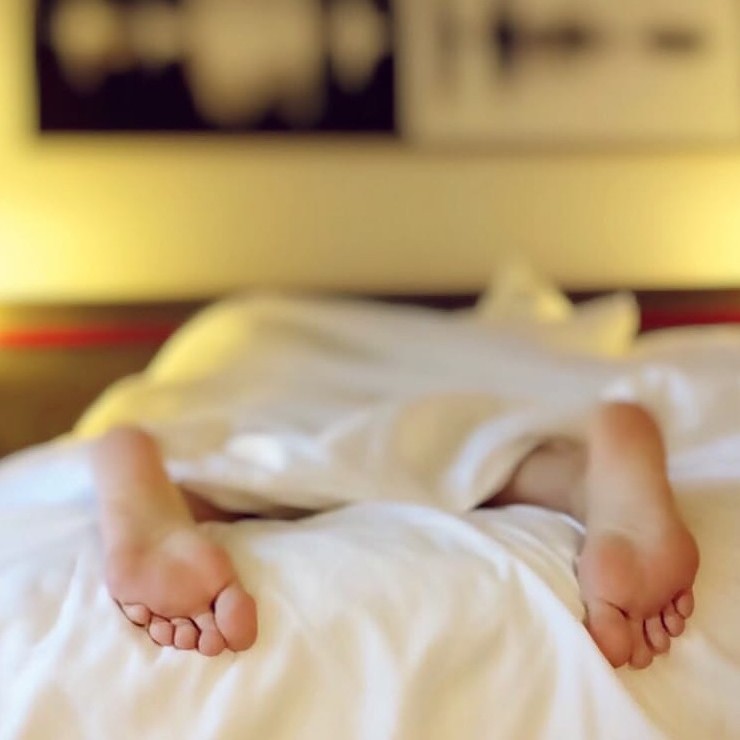How was your sleep last night? Did you get a solid, uninterrupted 8 hours of bliss? If you’re like most people, last night probably looked more like dragging yourself to bed once you’d reached complete exhaustion, tossing and turning, waking up randomly at 3am and feeling wide awake, then being rudely awoken by your alarm. Sound familiar?
There’s a spectrum of the quality of sleep between the complete bliss and the complete nightmare, and if you’re sitting closer to the latter then it’s time for a reset.
If you feel like you’ve tried everything from pills and potions to plants and night-lights, a new study from the University of Colorado has shown that there may be a much simpler way and it comes from the great outdoors.
Think about the way that our ancestors used to live, they’d rise with the sun and go to sleep with the sun. Their circadian rhythm was very much dependent on natural light which kept the body clock in check.
Fast forward to the way we live and we are not only deprived of natural light, spending hours under artificial lighting in office blocks, but we’re also forcing this artificial light into our lives late into the night. This is causing chaos with our circadian rhythm, and is a significant contributor to the lack of quality sleep.
Melatonin is the hormone that is released that helps us go off to sleep. It is well known that light destroys melatonin in our bodies. Going to bed late not only contributes to tiredness and productivity throughout the day, but is also now linked with obesity, diabetes and mood disorders.
So how do you hit the ‘reset’ button? A recent study has shown that just a couple of nights in the great outdoors are enough to retune the body’s internal clock. This not only allows you to fall asleep more easily, but it allows the body to move through the five stages of sleep more rhythmically.
So say you’ve done your weekend reset, how do you keep it up? Here are the top five ways to bring the traditional outdoors elements back in with you:
1. Embrace the darkness. The natural environment has one key element that we seem to be missing in our modern world – complete darkness. I love when staying at hotel rooms they have those blackout blinds. I could be sleeping in the middle of the day and think it’s the dead of night because it’s so DARK! At home, do your best to make your bedroom as dark as possible. Remove all sources of artificial light – even a TV light is enough to keep you wired. Invest in some good blackout blinds (or get creative with your own DIY version). Even using an eye mask can really help to take your body into full darkness.
2. Turn off the tech. This is often the hardest one for a lot of people. When you go camping (and you do it right) there is no technology. Phones, ipads, ipods, all i-things are off. While it is not realistic in the modern world to throw away your phone, try weaning yourself off before bedtime. Start with switching it off (or to flight mode) 5 minutes before bed. Then extend that to 10 minutes, 30 minutes, 1 hour, up to 2 hours before bed. Not having contact with a screen before bed REALLY helps to unwind the mind and help you switch off before going to sleep. All those thoughts that come racing in as soon as your head hits the pillow will have time to digest BEFORE bed if you allow them.
3. Lessen the lights. Unlike in camping where you have to follow the sun for the hours you can be awake and active, I’m not going to tell you to go to bed with the sun (particularly hard in winter when the sun goes to bed so early!). Instead, try and dim lighting in your house, or keep it to a minimum for 30 minutes before bed. Use low lighting lamps, candles, lights that aren’t so aggressive and prone to destroying that much needed melatonin release!
4. Set your bedtime meeting. My clients who have the best nights sleep treat their bedtime like an important meeting. Some of them even have an alarm when it’s time to go to bed! Getting into a routine of a set bed time that’s at a reasonable hour not only helps keep that circadian rhythm happy but also makes waking up on the other end much easier!
5. Target is 7-9. That’s hours of sleep. It’s sometimes easier to work backwards, figuring out what time you need to get up with what time you need to go to bed. Research shows that it’s the hours BEFORE midnight that are the best quality, so try and make at least two of those hours before midnight.
Sleeping has such a huge impact on how we feel; our energy levels, food cravings, our ability to exercise and move. It is one of the biggest problems that clients come to me with, and one of the best solutions to so many other (seemingly unrelated) problems! Start working on your sleep routine today and see how it transforms your life.



3 thoughts on “Complete Bliss or a Total Nightmare?”
hello there and thank you for your info ?I抳e definitely picked up anything new from right here. I did however expertise several technical points using this website, since I experienced to reload the web site many times previous to I could get it to load properly. I had been wondering if your web hosting is OK? Not that I am complaining, but sluggish loading instances times will very frequently affect your placement in google and could damage your high quality score if advertising and marketing with Adwords. Well I抦 adding this RSS to my email and could look out for a lot more of your respective intriguing content. Make sure you update this again soon..
Thanks for the ideas you share through this web site. In addition, lots of young women that become pregnant don’t even try to get health insurance because they are concerned they would not qualify. Although some states today require that insurers give coverage no matter what about the pre-existing conditions. Fees on these guaranteed plans are usually greater, but when considering the high cost of medical care bills it may be some sort of a safer approach to take to protect your financial potential.
Wow! Thank you! I continually wanted to write on my blog something like that. Can I include a portion of your post to my website?